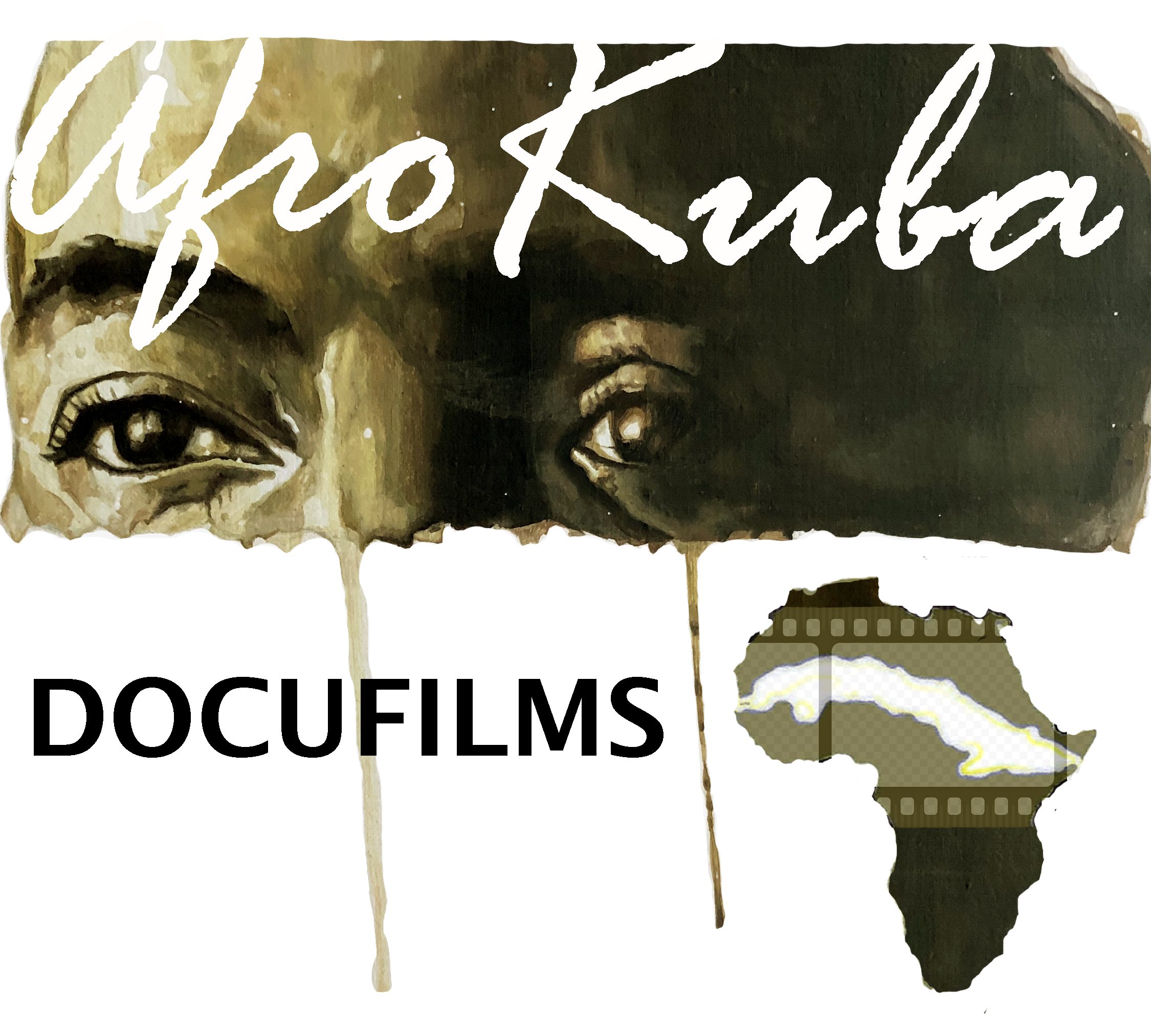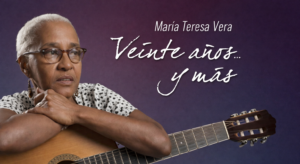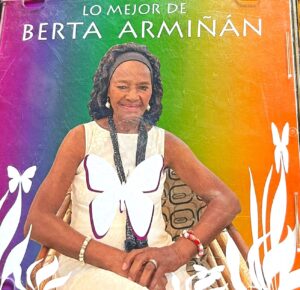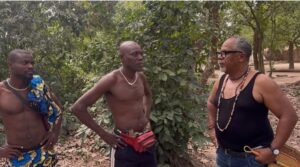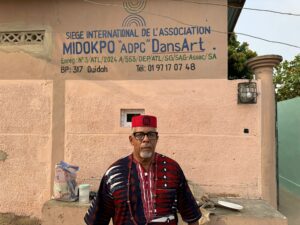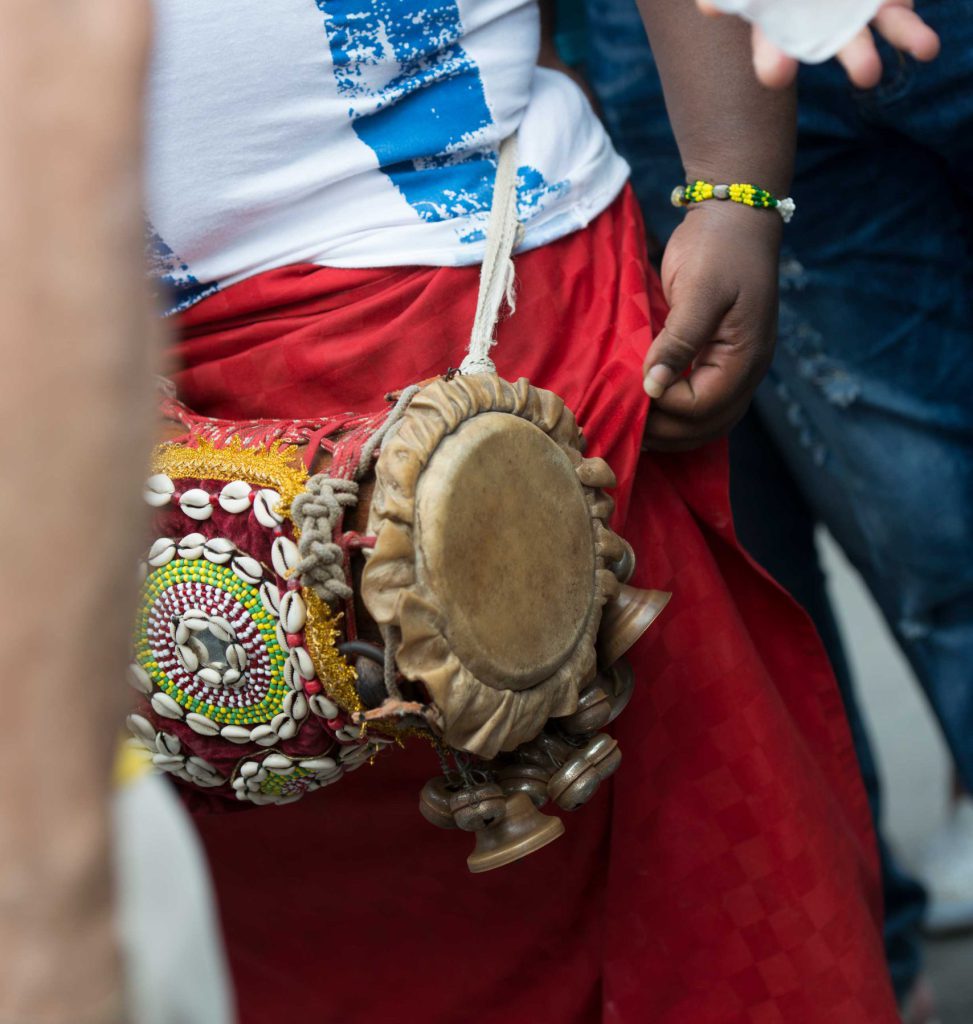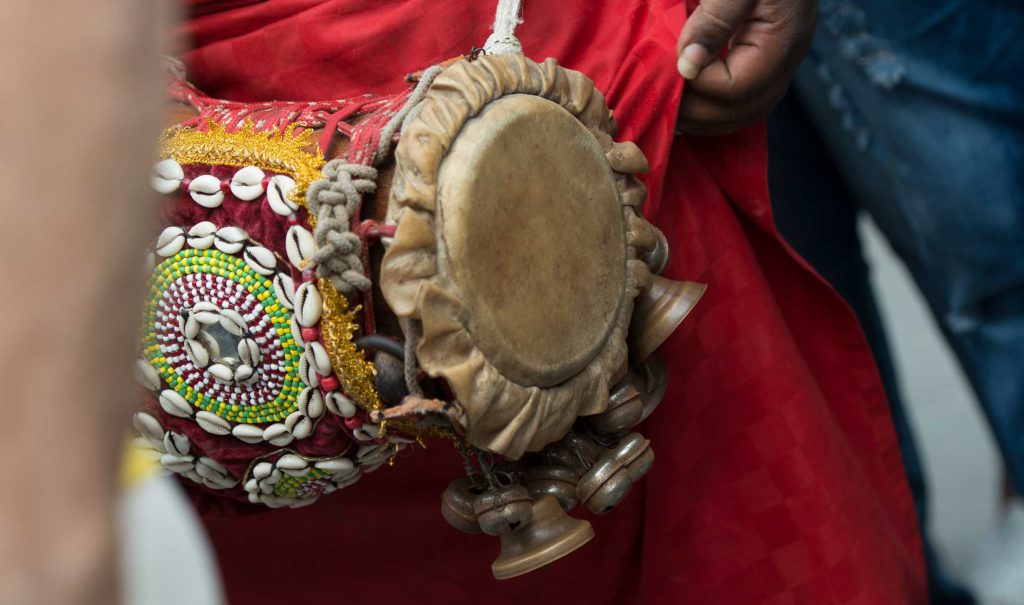He no longer lives in La Loma, but continues in his native Regla. Around him, the same friends as when he started, the same ekobios of yesteryear; but he has added to the list of initiates young obonekues who, like the previous ones, are also his moninas.
No longer living in La Loma, but still in his game Efori I Tongó, where he serves as Moongo of his power, Juan Gutiérrez Boza is one of the many members of the Abakuá Secret Society who actively collaborated yesterday in the struggle against Batista, and today is immersed in countless tasks in the construction of socialism.

In 1954 I joined the Orthodox Youth and later, when Faustino Pérez and René de los Santos founded the 26th of July Movement at 62 Factoría Street, I joined the action and sabotage group of Regla. I participated in several actions: assaults on the Electoral Board, pulling chains on the power lines. The Movement entrusted me to take care of revolutionary leader Fidel Labrador in my house. He was wounded and had been shot in the eye. We watched over him until, thanks to the efforts of his lawyer, he was given the habeas corpus. Fidel Labrador brought to Regla the first copy I saw of "La historia me absolverá".
In your opinion, what is the cause of the bad reputation of the Abakuá?
Prejudices come from the colony. At all times, from the 19th century until today, there has been a false concept of the Abakuá religion, a discrimination. For example, the term "ñáñigo" is a derogatory concept used by slave owners, the bourgeoisie and the wealthy towards the Abakuá. In our religion the concept "ñáñigo" does not exist, what exists is Ekobio Enyene Abakuá. "Ñáñigo" means beggar, pig, dragged. But it happened that other religions and fraternal associations were integrated by people of greater economic solvency, with a better public image for being, mostly white, descendants of Europeans, and although they did not have constitutionally official religions, they did enjoy more reputation because they had the means to do so.
Our religion had its origins in the Carabali blacks, slaves who gave birth here, in Regla, to the Ekobio Enyene Abakuá religion. It was a religion of the port workers, fishermen...
That is why when on January 1, 1959, Commander in Chief Fidel Castro stated that this Revolution was of the humble and for the humble, hundreds of obonekues joined the new process.
Were you already initiated as an abakuá at that time?
Yes, before the struggle began I was already an abakuá. My father was also an abakuá. In the movement there were other comrades who were also believers and we participated in everything. They never asked us if we were religious or not. The problem was to end the dictatorship. When the United Party of the Socialist Revolution was founded, there were comrades who gave up their abakuá status to join it. If they were convinced, I do not criticize them, but in my particular case I thought: "I am neither betraying the Revolution, nor betraying my brothers", and then, when they proposed me to join the Party, I said that I could not be a militant and I am not. I have simply remained faithful to the Revolution, I am abakuá and I have made Changó.
I also have internationalist ekobios. I remember that something very curious happened to one of them: he was doing Santo, initiating himself in the Rule of Ocha, and they came looking for him to go to Angola. He left the throne, left everything, and went to fight in the land where our gods came from. I also wanted to go to fight against the South African racists, but something unheard of happened to me: I went to the military committee to register as a reservist and they asked me for a series of data. I said that I had been in the 26th of July Movement and gave the names of my comrades.
The person who was taking my data showed admiration because among them were very well known people. As a further requirement, I was asked if I had any religious beliefs, to which I answered that I was Abakuá. I noticed how she opened her eyes, very astonished, and wrote it on the form, but this time she used red ink. I did not imagine the consequences that this would bring me.
Some time later I went to introduce myself and was turned aside. Everything became clearer when an old comrade from my mortar battery in the fight against bandits took me to talk to an acquaintance of his in the military committee, the then lieutenant Omar Bravo. We verified that that comrade had put me, as an observation in the payroll, that I did not have political conditions and that I offered ideological doubts for being abakuá. Only because I was sincere. Omar tore up the paper and made me a new one, but in the end I did not go to Angola.
Do you consider, then, that belonging to the Abakuá Society has brought you some limitations?
Indeed. In 1959 the National Revolutionary Police (PNR) was founded, and as a combatant in the underground I was appointed to be part of the Police, in which I worked as head of the VIVAC in the municipality of Regla.
However, in 1961 the Ministry of the Interior was founded and I was required to leave the religion in order to continue in the PNR. I then asked for my discharge and went to work in Customs. I could not fool myself for a salary, for military ranks or for a position.
What you can be convinced of is that I have to die for this moral commitment of mine and with those who fell in the struggle. My son knows that his name is Alberto because of one of my bosses in the underground: Alberto Alvarez, one of the martyrs of Regla. Of course, with the process of the Revolution the mentality of many has changed: the political chief of internal order here in Regla maintains very good relations with the abakuá powers, with a very clear vision of the revolutionary transformations. It was not like that before.
We don't have to go that far: I remember that once my son Alberto had an argument that he did not provoke and when he arrived at the PNR Unit there was a comrade who in a discriminatory tone said to him: "Of course, if you are the eye of the head of the abakuá of Regla". Nobody spoke of his father's other story, nor did they analyze Alberto's attitude, only that "he was the son of the abakuá". He had been elected as a young communist. For six years he has worked as a welder in maritime works, he is a voluntary blood donor, with 26 years of age he has already donated 15 times. In the rain he welded in Tarara to prepare the houses for the Chernobyl children and was elected as an outstanding worker that year. However, no one remembered his merits when it came to telling him that his father was the chief of the Abakuá.
Alberto has also been a member of our Society for several years and holds the position of interim Mosongo of Efori I Tongó. On the other hand, whoever does not know him does not know that he is an abakuá. Ours is a family tradition that goes back to my grandfather.
However, it is undeniable that the Abakuá have a reputation as troublemakers.
It is clear! There are those who are conflictive, and even become antisocial, calling into question the essence of our religion. But the same thing happens with the Revolution. There are people who are trusted, who are given responsibility and then corrupt themselves, causing damage to our process. But the Revolution is pure and its work has as its supreme goal the betterment of man. And whoever thinks that to be abakuá you have to be handsome or a delinquent, is wrong!
It is required to be respectful towards parents, to be a good son, a good blood brother (not only with the ekobios), a good father if one has children, to be correct and to maintain good human relations. Without these principles one cannot be abakuá.
We do not recruit, everyone who wants to join comes spontaneously, but there is something fundamental, if the parents do not agree (and we also check this), we do not initiate it.
What is your opinion of the state's policy regarding religious beliefs?
As I have already told you, it is undeniable that throughout 32 years of the Revolution we have been victims of serious and grave prejudices, sometimes due to the incorrect behavior of some of our members, but we have also lived very encouraging experiences, especially in recent years, such as the publication of "Fidel and Religion" or Fidel's meetings with Christians.
For me, particularly, it was very stimulating the day they sent for me from the House of Africa, in Old Havana, to assess the fidelity of the altar and the room dedicated to the Abakuá. I explained what I could, because in our religion there are things that are secret. A few days later I received another surprise: the King of Nigeria, Oni of Ifa, came to Cuba and they invited me again to the House of Africa where I met with him and the Commander of the Revolution Juan Almeida.
I spoke a lot in the Efik language with such a distinguished visitor, then I danced to the Abakuá music performed by the Conjunto Folklorico and I did it with such passion that the King could not contain his question: "How, with that hair and that color, can you dance like that and be a high leader of an Abakuá power?" And I answered: "My father was Isué, and he was whiter than me".
